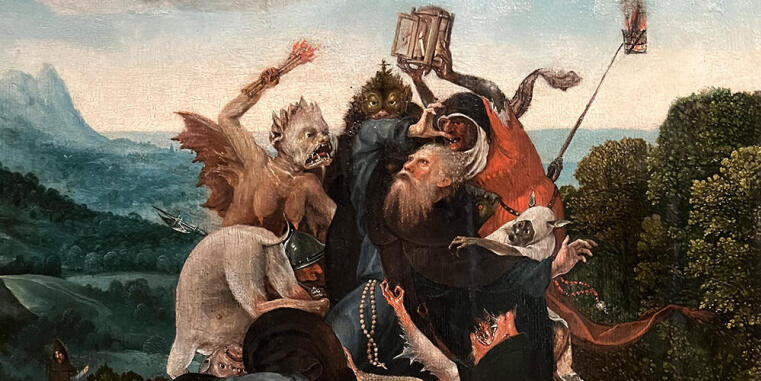
Demons. Spirituality – Manifestation – Materiality
Demons – according to researchers, these elusive beings, neither human nor divine, can be found in history, art and literature from antiquity to the present, and express the relationship between humans and the supernatural. Literary scholar Martina Wagner-Egelhaaf from the Cluster of Excellence “Religion and Politics” explains: “Demons have always been considered highly dangerous, but in certain circumstances or on certain occasions they could also appear benevolent, and they have been portrayed in this dual way in everyday, literary and artistic contexts. Even though the modern period often understands demons metaphorically, they have lost none of their fascination in art and literature”. A project group entitled “Demons: Medialities between literature and art, religion and politics” and comprising art historian Eva Krems, historian Ulrike Ludwig, and literary scholar Martina Wagner-Egelhaaf from the Cluster of Excellence is conducting research on this theme together with literary scholar Silvia Reuvekamp and historian Nikolas Funke from the University of Münster.
The dossier “Demons: Spirituality – Manifestation – Materiality” takes different perspectives to illuminate this field of research. An interview entitled “Of demons and devil’s grimaces” sheds light on the different approaches that scholars in art, literature and history use to deal with the theme of demons, and where interdisciplinary similarities and differences lie. Also addressed is the question as to whether and how demons can be defined in the different disciplines.
A conference in spring 2025, entitled “Demon│ization”, will explore the changing ideas about demons from antiquity, through the Middle Ages and the early modern period, to the modern era. The conference will pay particular attention to so-called metaphorical demonizations, focusing on the linguistic and artistic representation of demonic manifestations, the specific rhetoric and discursive patterns used to depict demons, and the processes of fictionalization that emanate from deceitful and illusion-creating demons.
The six-part lecture series “Demons” in the 2024/25 winter term uses case studies from architecture, literature and history to explore how people from the Middle Ages to the present day have dealt with the idea in their respective cultural media that a latently threatening, neither human nor divine, “other” exists.




